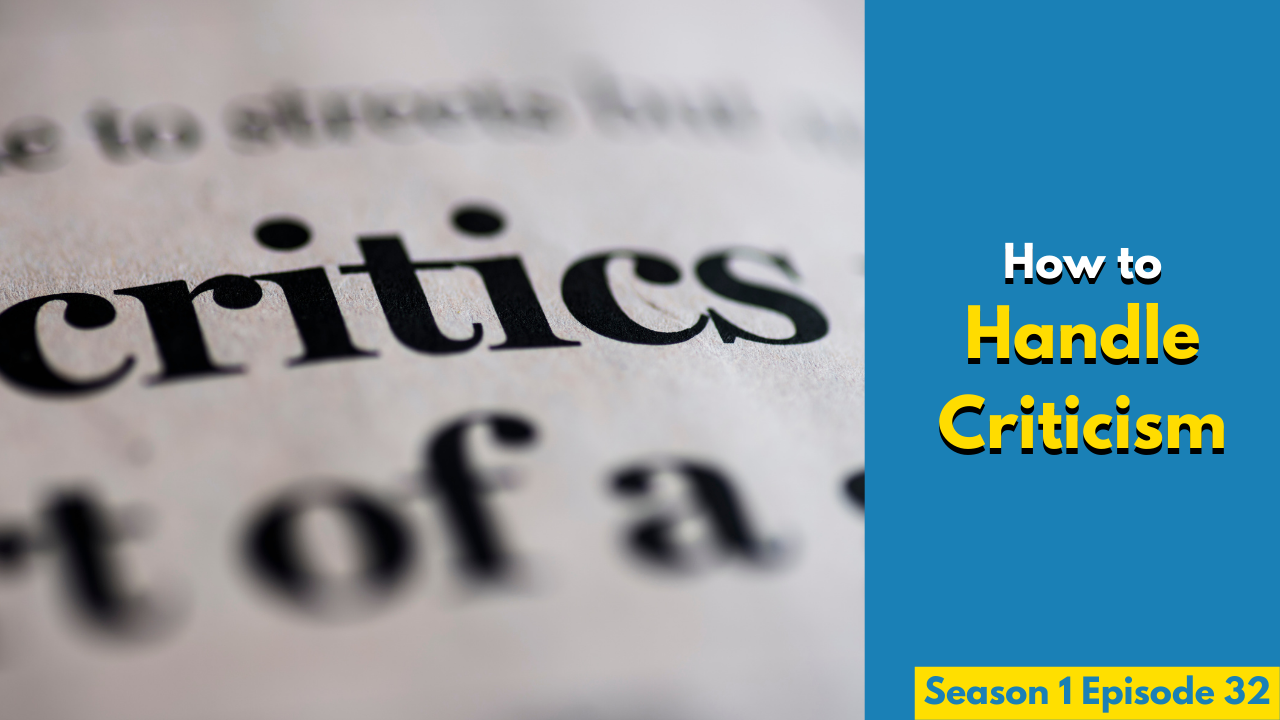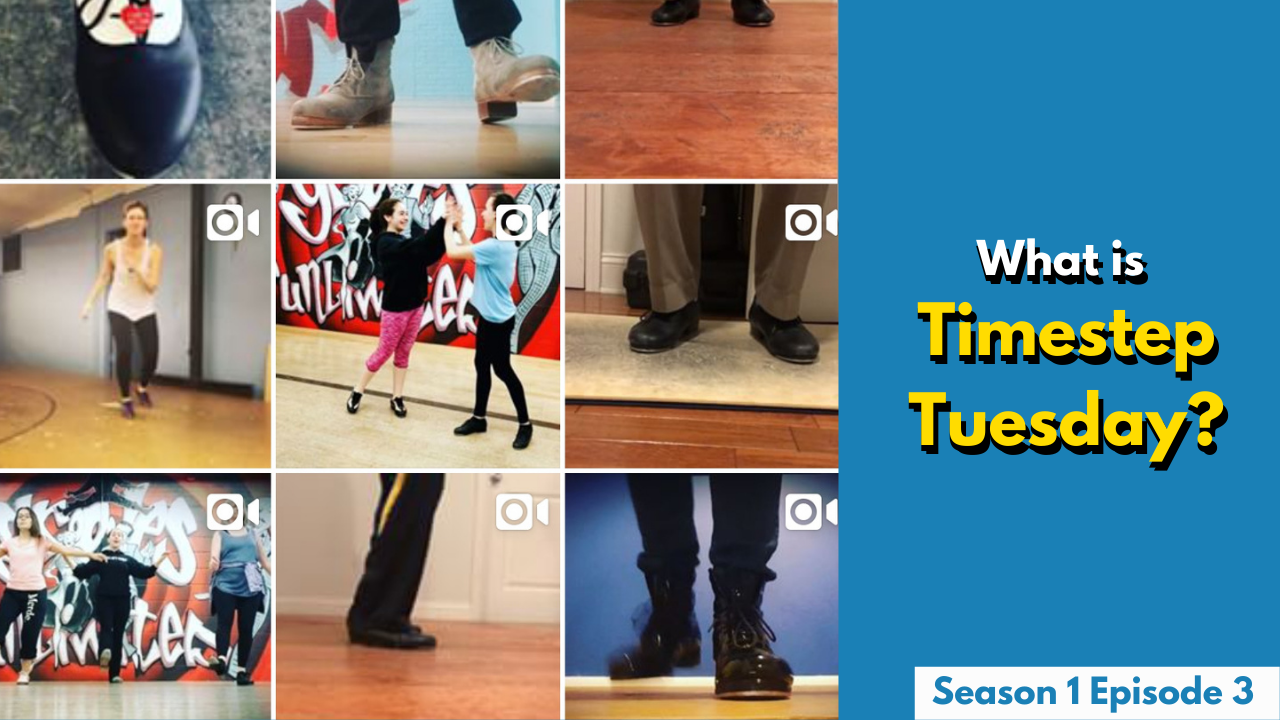How to Handle Criticism

Published on June 20th 2019 by Hillary-Marie
This episode isn’t for students who receive criticism from their teachers because in my opinion, there’s one way to handle corrections in the studio from your teacher, and that is to say thank you, think long and hard about the advice that was provided and then decide on the best way to apply it to your training.
Today’s episode is for artists who are putting their art out there for public consumption, because where there’s public consumption, there’s public criticism. At least, if you’re lucky.
Definition of criticism:
A friend of mine often reminded me that art is meant to ignite a response, whether it’s positive or negative isn’t the call of the creator, but the decision of the consumer of said art.
You pour your heart and soul into a new body of work. The concept consumed your mind for days on end before you brought it to life, and now it’s here and it’s open to the public for viewing. You feel on top of the world. You go to sleep, and the next day you wake up and a friend texts you saying that they talked to someone who said they weren’t into it. Or you check your video for comments, and some people are throwing shade your way.
It took a lot of effort to create this body of work and a lot of time and energy to put it out there, and you don’t understand how anyone could not enjoy it! So your feelings are hurt and from there, two things typically happen:
Option 1: You can feel insulted and get real down about yourself, get really negative and dark about the situation, or get really defensive.
This right here is straight up suffering. This entire situation is suffering. And you should avoid suffering at all costs.
So if we want to ignore suffering… what do we do? Let’s look at all of our options.
Ignore the criticism? That’s what they say, ignore the haters.
Taking constructive criticism from others is required to get to the next level – Wendy Starland.
So what if you just did a better job in order to avoid criticism all together in the first place?
There is only one way to avoid criticism: do nothing, say nothing and be nothing – Aristotle.
Aristotle’s right. The only way to avoid criticism is to simply not create.
If you absolutely can't tolerate critics, then don't do anything new or interesting.”
Well, that’s not happening.
Criticism is the price of ambition – Robert Sharma
So do you take it to heart and make changes to your work? Absolutely not.
“If we need everyone to like our work in order to feel grounded, it means that we’ll sacrifice the best of what we could create in order to dumb it down for whatever masses happen to be speaking up. Which will make it more average (aka mediocre) and thus eliminate any magic we had hope to create” - Seth Godin
Option 2: What if you stepped back and asked yourself if the criticism they’re sending your way has the potential to help you raise your standards or raise your level?
Learn to see the difference between constructive and destructive criticism. Appreciate the constructive, ignore the destructive – John Douglas
So here’s what inspired me to record this episode specifically on criticism. I started producing full-length shows when I was a teenager and I haven’t stopped since. Many of those shows, were absolute trash. I give thanks that I have the ability to look back at the body of work I’ve created over the years and say “wow, I’ve come a long way”. Because THAT is growth. And I’ve really felt exponential growth over the years and I can only hope that 10 years from now, that I can look back to today and say the same exact thing. I was literally looking back at performances I’ve done in the last 10 years, and some of the work I did 5-10 years ago was so bad. But that’s okay, because that was my journey. What was fascinating though, was that I saw where it all “clicked”. It was as if one day, overnight, I just understood it. I understood the music, the technique, the vocabulary, the voice, the vibe and every gig before that day, was crap, but from that day moving forward, it was good. One might look back and be ashamed of that or embarrassed. But not me, I’m cool with it. I give thanks that I can look back at it and laugh, because it means I grew. Growth is real you guys.
And that growth wouldn’t have happened without constructive criticism. It wouldn’t have happened if I hadn’t surrounded myself with people who are trustworthy, people who are great at what they do, people who are better than me, people who believe in me and what I was trying to do and therefore leant me a hand in the form of their opinion, in the form of their knowledge. In the form of criticism. That criticism got my gears churning, it made me think deeper, dig deeper inside of myself, work harder.
The reason I want to share this with you is because it wasn’t always like that. I used to get real heavy and dark. Question myself. Tear myself to pieces over someone’s criticism of my work.
NOW when I receive criticism, I step back, and I ask myself what is this person’s intention?
- If it’s ill intention, it does not affect my world. I don’t allow it to affect my world. I see it for what it is, an attempt to cut me down and hurt my feelings, so it’s in one ear and out the other.
- If the intention is real, if this person is in my corner, someone who has love, kindness and compassion for me, my ears are open. Then, I sit with it and use it as an inspiration for a brainstorm.
Some criticism is pretty straight forward, and you choose to make the change or not. Someone says, I can’t believe you had an intermission in the show, it killed the flow. Maybe it was required in my contract with the theatre to have an intermission, so it is what it is. But maybe I chose to have an intermission for a costume change, so I ask myself, does the costume change enhance the piece so much that it’s worth halting the flow of the show? It gives me a chance to dig a bit deeper into the elements of the work, and that’s good. And maybe that brainstorm makes me sit back and say, nope, the intermission stays, I don’t agree with this person.
I look at criticism from another angle. If it inspires a new thought, a potential change, so be it, if not, no big. But I remind myself, that by speaking to this one person, and gaining their feedback, that the only thing that I have learned, is what one person thought about my art that day. That’s literally it. I’ll say it one more time. The only thing that you learn when someone shares criticism with you, is what that one person thought about your art that day. But by using that checklist of what to do with that criticism after is received, you have the opportunity to learn a lot more about yourself and your art.
You can’t progress unless you learn not only to receive criticism, but also invite criticism – Golzar
I have a close circle of trusted friends that I look to when I create new work. Many of them are on my creative team as stage manager, tech director or music director. Some of them are friends unrelated to the project. Some of them tap dance, some of them don’t.
I send them my rehearsal videos, I talk through the concepts and technical needs of pieces with them. They tell me their thoughts. Just because they’re my friends, sharing their thoughts, doesn’t mean it’s not criticism. They’re criticizing me left and right. It gets intense. And I love it, because it gives me the opportunity to justify to them, WHY, I’m doing something, which is really me justifying to myself, which isn’t justification at all, but rather, forcing me to fully develop my idea, with honesty.
And when my friends make work, I return the favor. We’re not seeking each other’s approval. I don’t need someone to tell me that something is a good idea to make me want to do it. We consult each other for specific expertise, because we trust that there are other people in the world with more knowledge and more experience to help us along the way. We trust that those people that we choose to surround ourselves with want to help us along the way.
But the most important thing that you have to remember in all of this, is that no one will ever love your art as much as you do – and that’s okay. I wouldn’t expect it any other way. I hope that inspires you to love it and be true to it more and more. Think about that… no one can possibly love your art as much as you do. So you better love it with everything that you’ve got. And remember that not everyone will like your art. And just because someone doesn’t like your art doesn’t mean that they don’t like YOU.
And hey, maybe they don’t like you or your art. But is that really someone you want to take criticism from?
Don’t let compliments get into your head. And, certainly don’t let criticism get into your heart.
I have a business mentor, her name is Theresa and she says, “Take positive feedback to heart and negative feedback in context.” I really dig that. Because, isn’t context everything?
And my last thought, is that if someone cares enough to dislike your art and share it with you, and I’m not talking about gossip, I’m talking about directly with you, just say thank you. Thanks for taking time out of your day to check it out, and thanks for caring so much, that you’d share with me just how much you didn’t like. And leave it at that.
All in all, be honest in your work, seek opportunities for growth and surround yourself with people that will help you reach that next level. Do not fear criticism. Use it as your platform to help yourself to ask the heavy questions.
I want to hear from you:
What are your experiences with criticism? Does it make you cringe? Are you afraid of it, insulted by it, fueled by it? Please share in the iTapOnline™ Community Facebook Group or in the comments below.

